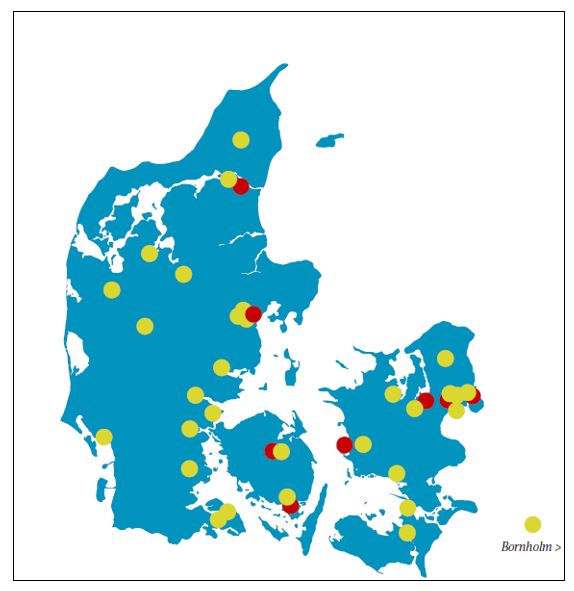 Neurology in Germany I – Founding Fathers of the 19th Century
Neurology in Germany I – Founding Fathers of the 19th Century
by Helmuth Steinmetz
Today’s neurology would not have developed and is unthinkable without the close interaction that took place among our European forefathers as early as in the 19th century. The following paragraphs are devoted to some of these pioneers from Germany.
Romberg, Erb and Wernicke
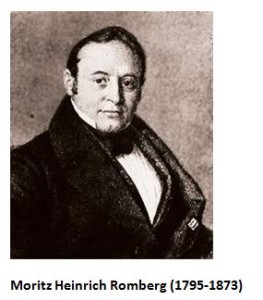 “The term neurologist indeed dates from 1832, the year that Romberg introduced the work of Charles Bell to his Berlin audience.” [1] Born in 1795, Moritz Heinrich Romberg translated the first edition of Sir Charles Bell’s anatomic book on “The Nervous System of the Human Body” into German. Adopting Bell’s and Francois Magendie’s distinction between motor and sensory nerves and spinal root portions, Romberg was the first to formulate an analytical structural-functional approach towards examining and understanding disease-related dysfunction, mainly of the peripheral and spinal nervous system. “Neurology as we know it today, in practice and in clinic, developed only after he published the first edition of his “Lehrbuch der Nervenkrankheiten”, the first volume in 1840 and a final one in 1846.” [1] An influential English edition was issued in 1853 in London.
“The term neurologist indeed dates from 1832, the year that Romberg introduced the work of Charles Bell to his Berlin audience.” [1] Born in 1795, Moritz Heinrich Romberg translated the first edition of Sir Charles Bell’s anatomic book on “The Nervous System of the Human Body” into German. Adopting Bell’s and Francois Magendie’s distinction between motor and sensory nerves and spinal root portions, Romberg was the first to formulate an analytical structural-functional approach towards examining and understanding disease-related dysfunction, mainly of the peripheral and spinal nervous system. “Neurology as we know it today, in practice and in clinic, developed only after he published the first edition of his “Lehrbuch der Nervenkrankheiten”, the first volume in 1840 and a final one in 1846.” [1] An influential English edition was issued in 1853 in London.
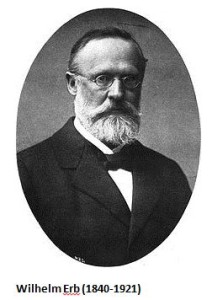 Born in 1840, Wilhelm Erb possibly “was the most brilliant clinical neurologist of the latter part of the nineteenth century”. [1] After having gained experience in pathology and internal medicine, and stimulated by teachers such as Friedreich and Duchenne, Erbs’s further work was mainly devoted to spinal and muscular disorders, but also to electrotherapy. He was among the first who regularly used the reflex hammer. He clearly stated the need for neurological specialisation and education. Thus, “perhaps his greatest gift to neurology was in the field of teaching, for it is to Erb we owe the development of an orderly and systematic manner of examination, so fundamental to diagnosis”. [1] Among his scholars were Adolph Strümpell, Max Nonne and Johann Hoffmann.
Born in 1840, Wilhelm Erb possibly “was the most brilliant clinical neurologist of the latter part of the nineteenth century”. [1] After having gained experience in pathology and internal medicine, and stimulated by teachers such as Friedreich and Duchenne, Erbs’s further work was mainly devoted to spinal and muscular disorders, but also to electrotherapy. He was among the first who regularly used the reflex hammer. He clearly stated the need for neurological specialisation and education. Thus, “perhaps his greatest gift to neurology was in the field of teaching, for it is to Erb we owe the development of an orderly and systematic manner of examination, so fundamental to diagnosis”. [1] Among his scholars were Adolph Strümpell, Max Nonne and Johann Hoffmann.
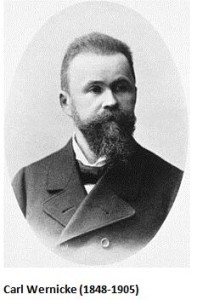 Different from the originally trained “internists” Romberg and Erb, Carl Wernicke, born in 1848, came from the field of psychiatry. Accordingly, his main interest was the analysis and understanding of brain dysfunction. Shortly following Broca’s observations published in 1861, Wernicke further conceptualised “topic” models of higher-order dysfunction such as aphasia. He envisioned that these might hopefully be able to later unify neurology, psychology and psychiatry. Other than this premature expectation, the developing “neurological surgery” benefitted particularly from his way of thinking. Wernicke’s most important scholars were Otfried Förster, Kurt Goldstein and Karl Kleist.
Different from the originally trained “internists” Romberg and Erb, Carl Wernicke, born in 1848, came from the field of psychiatry. Accordingly, his main interest was the analysis and understanding of brain dysfunction. Shortly following Broca’s observations published in 1861, Wernicke further conceptualised “topic” models of higher-order dysfunction such as aphasia. He envisioned that these might hopefully be able to later unify neurology, psychology and psychiatry. Other than this premature expectation, the developing “neurological surgery” benefitted particularly from his way of thinking. Wernicke’s most important scholars were Otfried Förster, Kurt Goldstein and Karl Kleist.
Two Mothers: Psychiatry and Internal Medicine
Although neurology in Germany emerged from both internal medicine and psychiatry, it remained part of primarily psychiatric institutions in most German universities and hospitals until the second half of the 20th century (“Psychiatrische und Nervenkliniken”). This differed from the English or French speaking countries of Europe and America and also stood in contrast to the considerable number of internationally renowned “pure neurologists” in Germany before the world wars.
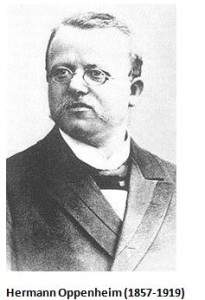 Recognising the need for their specialisation and self-organisation, a group around Hermann Oppenheim 1906 wrote the following statement that became the “birth certificate” of today’s German Neurological Society: “Neurology still lacks the acceptance of its independence in universities and hospitals. We need an association of German neurologists representing their interests.”[2] Shortly thereafter, at the age of 67, the great teacher Wilhelm Erb became the first president of the “Gesellschaft deutscher Nervenärzte” founded 1907 in Dresden.
Recognising the need for their specialisation and self-organisation, a group around Hermann Oppenheim 1906 wrote the following statement that became the “birth certificate” of today’s German Neurological Society: “Neurology still lacks the acceptance of its independence in universities and hospitals. We need an association of German neurologists representing their interests.”[2] Shortly thereafter, at the age of 67, the great teacher Wilhelm Erb became the first president of the “Gesellschaft deutscher Nervenärzte” founded 1907 in Dresden.
Literature
- Viets HR. The history of neurology in the last one hundred years. Bull NY Acad Med 1948. 24:772-783.
- Kömpf D (Ed). 1907-2007. 100 Jahre Deutsche Gesellschaft für Neurologie. Deutsche Gesellschaft für Neurologie, Berlin, 2007.
Professor Helmuth Steinmetz works at the Center of Neurology and Neurosurgery, University Hospital/ Goethe University Frankfurt, Germany






